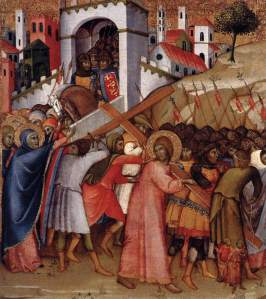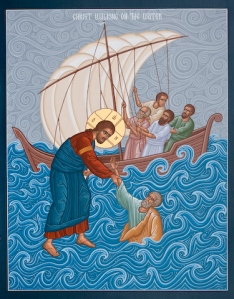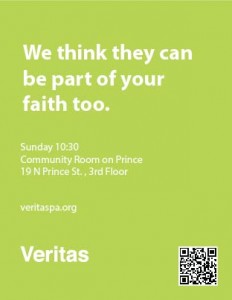 So the other week I was privileged to receive a review copy of Ed Stetzer's new book called "Subversive Kingdom: Living as Agents of Gospel Transformation." The only thing that I needed to do to get the book was to blog about it, put the review on Amazon.com and tell others about the book. So this is the first part of my assignment.
So the other week I was privileged to receive a review copy of Ed Stetzer's new book called "Subversive Kingdom: Living as Agents of Gospel Transformation." The only thing that I needed to do to get the book was to blog about it, put the review on Amazon.com and tell others about the book. So this is the first part of my assignment.
The point of this book is for followers of King Jesus (one of the best parts of the book in my mind in referring to Jesus as King) to be about the work of the Kingdom of God and to see that work as utterly subversive to the Kingdom of the world. To see life as a follower of Jesus as more than just going to a certain place, at a certain time, on a certain day of the week. To fully live out the subversive Kingdom of God.
Stetzer defines living out the subversive Kingdom of God in three different parts.
The first part is about Subversive Ways of Thinking. In this part he talks about rebelling against the rebellion and living for the Kingdom of God. He also talks about the Secrets of the Kingdom and he also defines the Kingdom of God as already but not yet. Some of the quotes that connected with me in this section include:
"He (Jesus) talks about the kingdom more than eighty times in just over eighty chapters."
"Political subversion polarizes kingdom citizens from the mission of the King." (super relevant in our world today in relation to the Chick-Fil-A mess, and the upcoming 2012 elections)
"They (large churches) know that the small interactions of disciples, lives, and groups is what makes their life together matter."
"Kingdom work is typically most recognizable by how small it is."
"Your church (and mine) does not exist to keep us away from the world."
"Small things, subversively placed, lead us to big things in God's kingdom."
One of the best parts of the first part is where he lays out what the mission that God has given to us, his church. Stetzer lays out 3 parts to our mission. 1. Our mission is to share Jesus with a broken world. 2. Our mission includes alleviating the needs around us. 3. Our mission focuses on both the local community and the larger world.
The second part of the book revolves around the idea of a Subversive Way of Life. This part of the book is divided into 4 chapters (Becoming your kingdom self, Uncommonly Good, Rules of Engagement, and Idol Elimination).
Some of the quotes that I really liked in this section include:
"But this call to 'engage in business' is what gives muscle and meaning to our Christian lives and to the fleshing out of our kingdom selves."
"God has made relationships his chosen delivery system for the gospel of hope."
"Relationally dysfunctional kingdom citizens are terrible advertisements for life with God being a better way."
"When we hold our rights and privileges too tightly and refuse to let anyone take advantage of us, when we resist opening ourselves up to being hurt or disappointed- under any circumstances- we do not live as one who's on the receiving end of God's grace."
"Both a king and his kingdom exist in every person's life, creating within us an impulse or desire for something more than we have right now."
"The church exists on earth as an outpost of the Kingdom of light."
The Last third of the book revolves around A Subversive Plan of Action and is made up of 3 chapters (The King's Mission, A Sign of Things to Come, and Instrumentality.)
Here are some quotes that resonated with me in this section:
"If it is God's mission, then it should also be the church's mission."
"The church doesn't have a mission; the mission has a church."
"And so he has placed us here in the church for one reason: to participate in his mission."
"The church, therefore, remains his central tool for accomplishing the subversive kingdom agenda."
"Any church daring to call itself missional might consider doing three kingdom things: (1) serving locally; (2) planting nationally; (3) and adopting an unreached people group globally."
"Jesus was sent to establish his kingdom. As kingdom citizens, we live sent. We must realize that for subversive transformation to take place, it must happen no only in times of gathered worship but through a whole week's worth of kingdom-oriented living and going."
"When the church scatters to do its kingdom work, lives are transformed in the process both physically and spiritually."
"the chuch is a present-day sing of the Kingdom of God."
"In living together as God's people under his reign and lordship, our churches provide to the world the closest resemblance of the kingdom of God on this side of eternity. We are the invisible kingdom made visible through the people of God and their shared lives on earth."
Now I am sure that I could go on for a while quoting some more things that stood out to me in Stetzer's book. For the most part, I really enjoyed the book and was challenged in it's content to continue seeking to live a subversive Kingdom life as an individual, as a family, and as a community of faith. There were alot of ideas, thoughts, and practical ideas that we could take and implement in Lancaster to subversively live out the Kingdom of God.
There, I believe, was some issues that I struggled with however while reading the book. One of the biggest for me related to how long it took him to get around to the communal aspect of living out the Kingdom. All too often the church in America sees itself in individual terms, and how "I" can live out the Kingdom, while the Scriptures, I believe, speak more to the idea of how can the community live out the Kingdom of God. As I was reading, I was thinking, he is missing a huge piece of the equation, but then was relieved that he finally did get around to the communal aspect.
A second issue that I struggled with (and maybe I am pretty sensitive to this as one who tries to follow the Prince of Peace), but some of the language revolving around living out the Subversive Kingdom lent itself to militaristic language. I realize that we are in a spiritual battle, but he lost me when referring to D-Day, Normandy, and being agents.
Lastly I wondered why he chose to put the book in the order that he did. To me it seems like he thinks that if we just think differently about something it will translate into acting differently, and sometimes that does happen. But I wonder if instead we flipped it. Here is a quote that I found in relation to the idea of thinking and acting. "it is very difficult to get people to think their way into a new way of acting. Instead, people must act their way into a new way of thinking. It's action innovation, not thinking innovation, that makes the difference."
So other than those three small critiques, I really enjoyed the book. I truly appreciated the opportunity to read it and review it.








